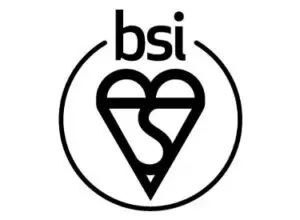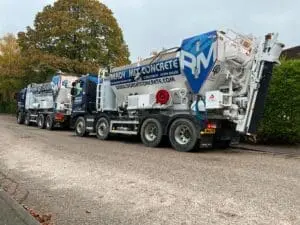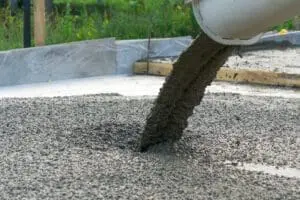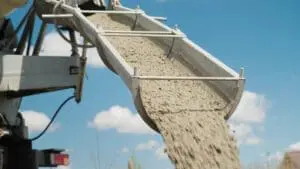As professional concrete suppliers, we are highly experienced and knowledgeable in all things concrete. You can find concrete nearly everywhere, anywhere you look, from buildings to bridges, walls, swimming pools, roadways, airport runways, floors and patios, all of these structures have been made with concrete, a man-made formula. Concrete is cement, water and coarse aggregates when they are mixed together, they create concrete, a construction material that will harden over time. Here we take a look at the different types of concrete:
Normal Concrete
Normal concrete, also known as conventional or plain concrete, is a mixture of cement, water, sand, and coarse aggregate (gravel or crushed stone). It is the most commonly used type of concrete in construction and is suitable for a wide range of applications due to its simplicity and relatively low cost. The strength and durability of normal concrete can be improved by adding admixtures, such as chemical agents that alter the setting time or increase the resistance to cracking and other forms of damage. Normal concrete typically has a compressive strength of 2500 to 5000 psi (pounds per square inch) after 28 days of curing.
Reinforced Concrete
Reinforced concrete is a type of concrete that involves reinforcing steel or fibre mesh to increase its tensile strength and provide improved resistance to bending and cracking. The reinforced steel is typically made of mild steel and is placed in a grid pattern in the concrete mix to provide additional strength in tension. Reinforced concrete is commonly used in the construction of buildings, bridges, and infrastructure projects, as well as in industrial and commercial floor slabs, retaining walls, and precast concrete products.
The main advantages of reinforced concrete are its strength and durability, which allow it to be used in a wide range of applications, including high-load and high-stress environments. Additionally, reinforced concrete has a high fire resistance, making it an ideal choice for building construction in areas prone to fires. The disadvantages of reinforced concrete include its relatively high cost compared to normal concrete, as well as the need for skilled workers to install the reinforcing steel correctly.
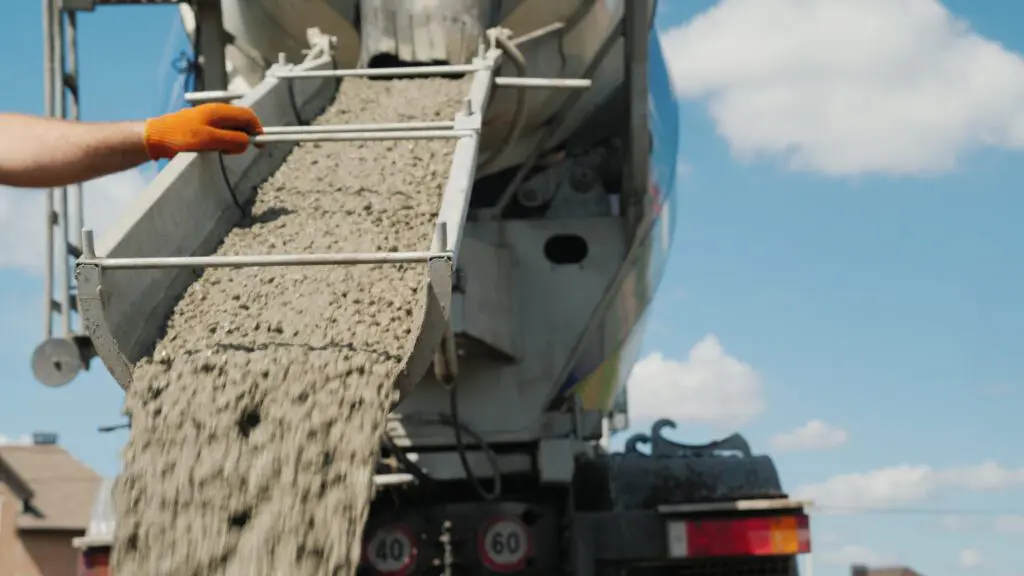
Prestressed Concrete
Prestressed concrete is a type of concrete in which internal stresses are introduced to the concrete to counteract the tensile stresses that will occur when the concrete is loaded. This is achieved by first applying compressive stresses to the concrete using high-tension steel cables, wires, or bars, and then allowing the concrete to harden around the reinforcement. The result is a material that is much stronger in tension than normal concrete and has a reduced risk of cracking under heavy loads.
Prestressed concrete is commonly used in the construction of bridges, precast concrete products, and large-scale industrial and commercial structures, where high strength and durability are required. The main advantage of prestressed concrete is that it can support much higher loads than normal concrete, allowing for the construction of longer spans, taller structures, and larger concrete members. Additionally, prestressed concrete has a long service life, is resistant to cracking and other forms of damage, and is highly resistant to fire. However, the process of prestressing concrete is more complex and requires specialised equipment and expertise, which can make it more expensive than normal concrete.
Lightweight Concrete
Lightweight concrete is a type of concrete that contains lighter weight aggregates, such as expanded clay, shale, or slate, in place of normal weight aggregates like gravel or crushed stone. This results in a lower overall density and improved insulation properties compared to normal concrete.
Lightweight concrete is commonly used in the construction of low-rise buildings, floor slabs, and other structures where weight reduction is desirable, such as in multi-story buildings. It is also used in insulation applications, such as floor and roof insulation, and as fireproofing in high-rise buildings. The main advantages of lightweight concrete are its lower weight, improved insulation properties, and reduced impact on the environment, since the production of lightweight aggregates often requires less energy than normal weight aggregates. However, lightweight concrete is generally weaker than normal concrete and may have reduced durability, especially in high-load environments.
High Performance Concrete
High-performance concrete (HPC) is a type of concrete that has improved mechanical and durability properties compared to normal concrete. It is made using advanced materials and techniques and is designed to perform in demanding environments, such as high-load structures, bridges, and infrastructure projects.
HPC typically contains higher-strength cement, fine aggregate, and mineral admixtures, such as silica fume or fly ash, which improve the strength and durability of the concrete. In addition, HPC may also contain high-performance fibres, such as steel or polypropylene, which enhance the tensile and flexural strength of the concrete. The result is a material with high compressive strength, improved resistance to cracking, and increased durability in harsh environments.
The main advantages of HPC are its high strength and durability, which allow it to be used in demanding applications, such as bridges and high-load structures. Additionally, HPC has improved resistance to environmental factors, such as freeze-thaw cycles and chemical attack, which makes it well-suited for use in harsh environments. However, the production of HPC is more complex and requires specialised materials and techniques, which can make it more expensive than normal concrete.
At Ready2Mix we offer a wide range of concrete options at incredibly low costs, just call our team today. Based in Dorset we cover the surrounding areas including Bournemouth, Poole, Ferndown, Christchurch, Verwood, Fordingbridge and Blandford.

